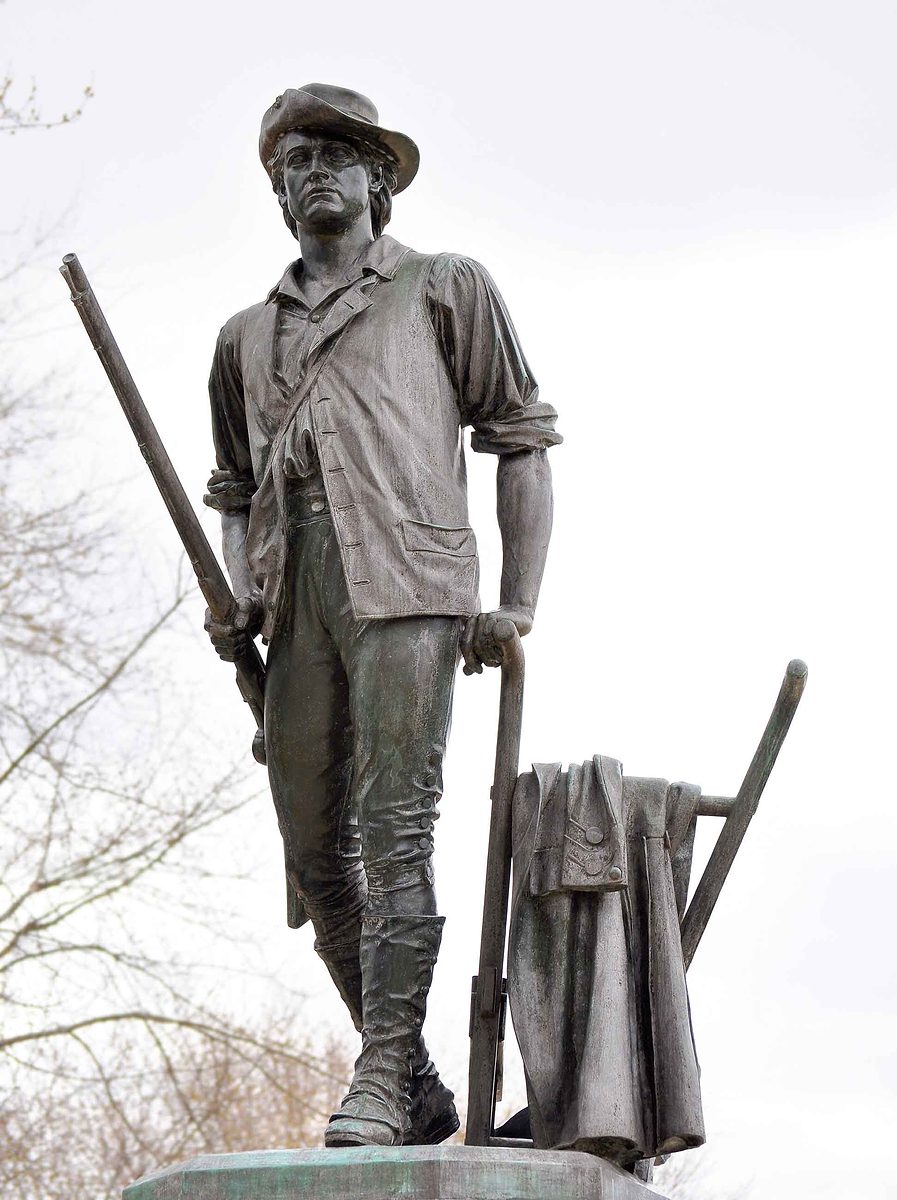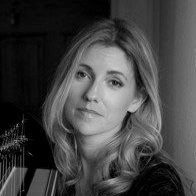
QUESTIONS
1. Which Concord authors have had their books turned into major motion pictures? Bonus points: Name the books/movies.
A. Louisa May Alcott
B. Ralph Waldo Emerson
C. Nathaniel Hawthorne
D.
Gregory Maguire
E.
Margaret Sidney
Click to show the answer
A. Louisa May Alcott
B. Ralph Waldo Emerson
C. Nathaniel Hawthorne
D. Gregory Maguire
E. Margaret Sidney
Answer: A, C, and D. Louisa May Alcott’s 1868 Little Women has been made into movies several times, most recently in 2019 starring Saoirse Ronan as Jo March. Published in 1850, Nathaniel Hawthorne’s The Scarlet Letter was also made into multiple films, starting with a silent film in 1926 and the latest in 1995 starring Demi Moore as Hester Prynn. Published in 1995, Gregory Maguire’s fantasy novel Wicked: The Life and Times of the Wicked Witch of the West was adapted into a Broadway play that was made into a movie starring Cynthia Erivo and Ariana Grande.
2. In November 2024, a monumental change occurred in Concord Center. What was it?
A.
A glass monument was installed to honor the upcoming 250th Anniversary of the Battles of Lexington and Concord.
B.
The Thoreau jail site memorial was replaced with a tiny house jail that can be rolled out for school programs.
C.
The Civil War Monument was restored and an updated memorial plaque added to reflect George Washington Dugan’s name as the 49th Union soldier from Concord who died during the Civil War.
Click to show the answer
A. A glass monument was installed to honor the upcoming 250th Anniversary of the Battles of Lexington and Concord.
B. The Thoreau jail site memorial was replaced with a tiny house jail that can be rolled out for school programs.
C. The Civil War Monument was restored and an updated memorial plaque added to reflect George Washington Dugan’s name as the 49th Union soldier from Concord who died during the Civil War.
Answer: C. The Civil War Monument was restored and an updated memorial plaque added to reflect George Washington Dugan’s name as the 49th Union soldier from Concord who died during the Civil War. Read more in Beth Van Duzer’s article “Preserving and Updating Concord’s Civil War Memorial” at DiscoverConcordMA.com/articles/269-preserving-and-updating-concords-civil-war-monument
Questions 3 - 10: The 250th is coming, and tourists are on the march to Concord! Kick your area and Revolutionary War knowledge up to tour-guide level and be ready at a minute’s notice to answer any visitor’s question:
3. Prior to European settlement, the area that is now Concord was the homeland of Native Americans and called “Musketaquid,” the Algonquin word for:
A.
Home of the muskrats
B. Great meadows
C.
Valley of the waters or where the rivers meet
D. Grassy river or grassy island
Click to show the answer
3. Prior to European settlement, the area that is now Concord was the homeland of Native Americans and called “Musketaquid,” the Algonquin word for:
A. Home of the muskrats
B. Great meadows
C. Valley of the waters or where the rivers meet
D. Grassy river or grassy island
Answer: D. Grassy river or grassy island. Learn more: Visit the Concord Museum or check out Victor Curran’s article “The People of the Musketaquid: Concord’s First Residents” at DiscoverConcordMA.com/articles/436-the-people-of-musketaquid-concords-first-residents
4. What year was the town of Concord incorporated by English settlers?
A. 1620
B. 1635
C. 1656
D.
1775
Click to show the answer
A. 1620
B. 1635
C. 1656
D. 1775
Answer: B. 1635
5. Compared to other early European-settled towns in MA, Concord’s settlement was unique for what reason?
A.
It was the first inland town
B.
Its first European settlers included convicted witches who had escaped from England
C.
Its members were all trained craftsmen and quickly built infrastructure
D.
It had the first liberty pole in Massachusetts
Click to show the answer
A. It was the first inland town
B. Its first European settlers included convicted witches who had escaped from England
C. Its members were all trained craftsmen and quickly built infrastructure
D. It had the first liberty pole in Massachusetts
Answer: A. As described in Lemuel Shattuck’s History of Concord, Concord was the “first inland town settled above tidewaters.”
6. Following the December 16, 1773, Boston Tea Party, the British Parliament passed the Coercive Acts of 1774. Also known as “the Intolerable Acts,” the acts consisted of four laws imposed upon the colonists. Which of the below was not one of these acts?
A.
The Massachusetts
Government Act
B. The Boston Port Act
C. The Tariff and Tea Act
D.
The Quartering Act
E.
The Administration of Justice Act
Click to show the answer
A. The Massachusetts Government Act
B. The Boston Port Act
C. The Tariff and Tea Act
D. The Quartering Act
E. The Administration of Justice Act
Answer: C. The Tariff and Tea Act is fictional and not one of the Intolerable Acts passed by Parliament. Read about how these acts affected Concord in Victor Curran’s article “A Turning Point at Wright’s Tavern” at DiscoverConcordMA.com/articles/162-a-turning-point-at-wrights-tavern
7. You live in Concord in early 1775. There is an empty barn on your property and your recently deceased friend’s house is sitting empty across the field from yours. Following the passage of Parliament’s Coercive Acts, you are most concerned about which of the four new acts that have been passed into law? See Question 6 for your choices.
Click to show the answer
Answer:
D. The Quartering Act. The act stated that, if no barracks were available, “any officers or soldiers in His Majesty’s service…without quarters [may, by order of the governor of the province, be housed in] uninhabited houses, outhouses, barns, or other buildings as necessary to be taken…for such time as [the Governor] shall think proper.” (Condensed and adapted from the original)
8. You live in Concord, MA, in 1773 and, as required by law, are part of the militia. You report for training four times a year and, each time, find yourself surrounded by people of what ages?
A.
17-28
B.
17-42
C.
16-60
D.
12-50
Click to show the answer
A. 17-28
B. 17-42
C. 16-60
D. 12-50
Answer: C, 16 - 60. A year after Concord was founded in 1635, the General Court of Massachusetts Bay Colony met on December 13, 1636, and ordered the organization of a militia in the colony. With some exceptions, men of 16-60 were required to serve. Read more about the 18th century Massachusetts Militia in Jim Hollister’s article “Militia Companies and the April 19th Alarm” at DiscoverConcordMA.com/articles/ 249-militia-companies-and-the-april-19th-alarm
9. Select all that apply. Like the person in the above question, you also live in Concord in 1773, but you are exempt from militia service because you are a:
A.
Farmer
B.
Woman
C.
Minister
D.
Quaker
Click to show the answer
A. Farmer
B. Woman
C. Minister
D. Quaker
Answer: B (Woman) or C (Minister). Only men were required to serve in the militia, and ministers were exempt. If you guessed Quaker, you earned partial credit. Despite their commitment to pacifism, Quakers were not exempt from early Massachusetts militia service and had a mixed history of service, risking punishment in their own communities if they did serve and punishment from the General Court if they did not. In 1757-58, the Massachusetts General Court updated the Province Laws, replacing fines on dissenting Quakers with a tax to fund replacement soldiers. [Province Laws, 1757-58, Ch. 0036]. Following the April 19, 1775, battles of Lexington and Concord, some Massachusetts Quakers were moved to join the newly-formed Continental Army. In 1800, the Massachusetts Legislature updated Militia Law to exempt Quakers from military service.
10. In a 1776 letter to her husband John Adams, Abigail Adams famously wrote, “Remember the ladies.” But, in the early 1770s, some Concord ladies may have preferred you didn’t take too much notice of them as they traveled up and down the road with spinning wheels in their carts. What were they likely on their way to do?
A.
Attend a spinning bee
B.
Subtly protest the Townshend Acts
C.
Visit with friends
Click to show the answer
A. Attend a spinning bee
B. Subtly protest the Townshend Acts
C. Visit with friends
Answer: A, B, and C, all of them! In 1767, British Parliament passed The Townshend Act which levied taxes on British imports to the colonies, including tea, paper, and glass. In a measure of protest against the new taxes, and a desire to break free of dependency on all goods supplied by Britain, Massachusetts women began gathering together in spinning bees to spin wool and flax into thread for cloth that could be locally woven.
11. Finally, the most important question you may be asked by visitors to Concord: Where is the public restroom in Concord?
Answer: Public restrooms are at the Concord Visitor Center at 58 Main Street.
Contact Barrow Bookstore for a list of sources. Barrowbookstore@gmail.com.
————————————————————————
For more than 50 years, Barrow Bookstore has been a favorite of residents and visitors alike, specializing in Concord authors and history, children’s books and literature. The shop also provides a wide array of gently read and rare titles ranging from paperbacks to first editions and original manuscripts. Staff members have all worked as tour guides and reenactors in Concord and are happy to share their knowledge about the town and its history. Discover more at barrowbookstore.com.


